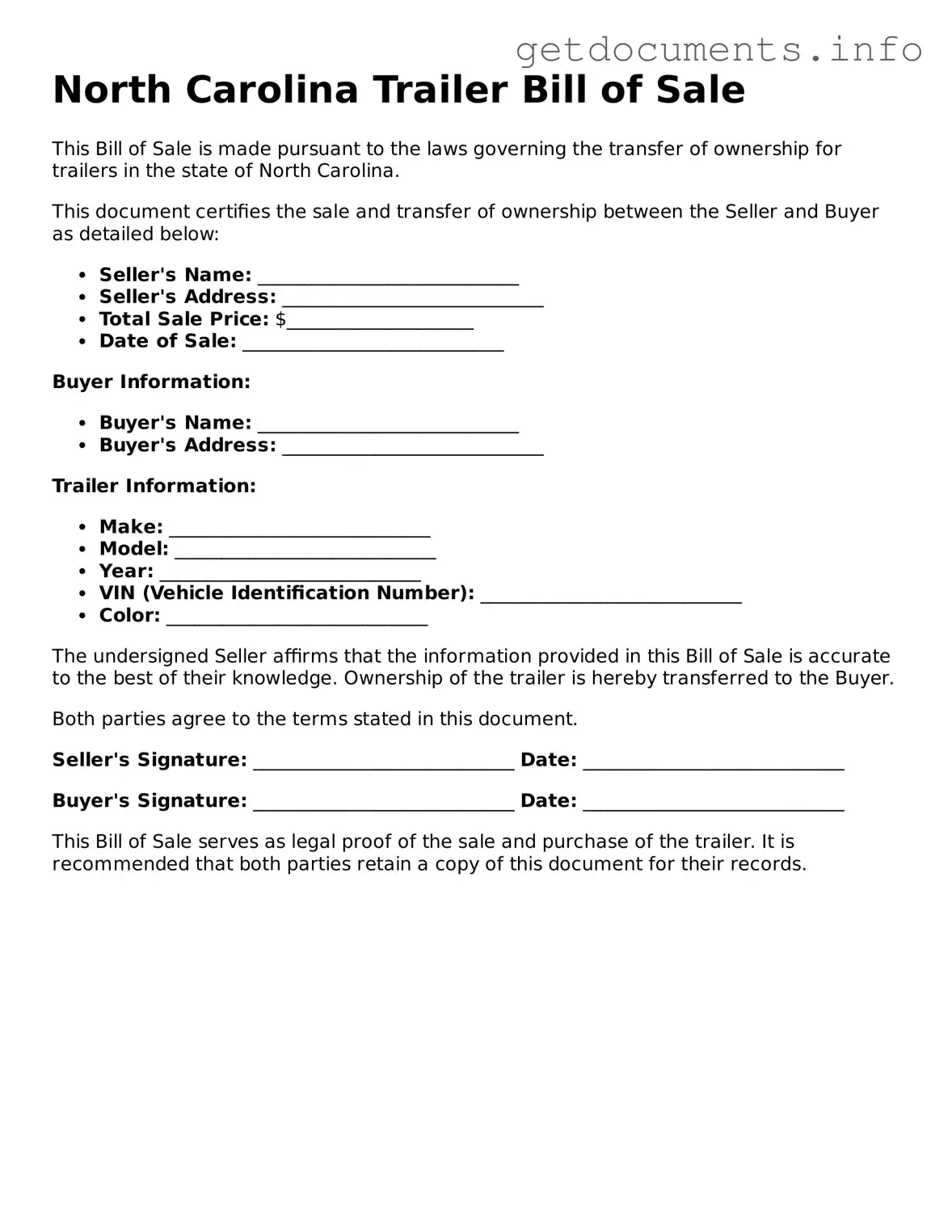Free Trailer Bill of Sale Template for North Carolina
The North Carolina Trailer Bill of Sale is a legal document that facilitates the transfer of ownership of a trailer from one party to another. This form serves as proof of the transaction and includes essential details about the trailer, such as its make, model, and identification number. Understanding how to properly fill out this form is crucial for both buyers and sellers to ensure a smooth transfer process.
Ready to complete your Trailer Bill of Sale? Click the button below to get started!
Access Trailer Bill of Sale Editor

Free Trailer Bill of Sale Template for North Carolina
Access Trailer Bill of Sale Editor
Got places to be? Complete the form fast
Fill out Trailer Bill of Sale online and avoid printing or scanning.
Access Trailer Bill of Sale Editor
or
⇩ PDF File
